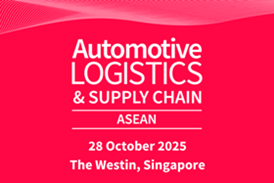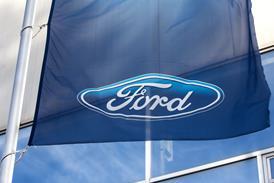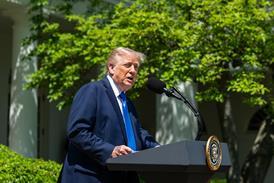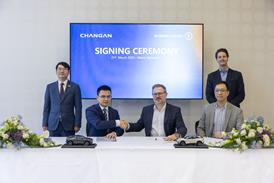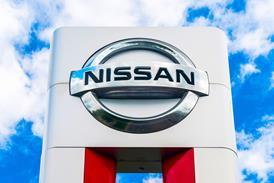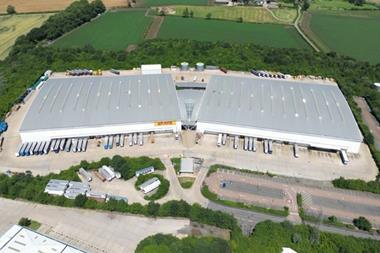 Whole production lines could come to halt in the automotive industry, if customs checks are introduced after Britain leaves the EU, the European Automobile Manufacturers’ Association (ACEA) has warned.
Whole production lines could come to halt in the automotive industry, if customs checks are introduced after Britain leaves the EU, the European Automobile Manufacturers’ Association (ACEA) has warned.
The sector body issued its warning ahead of a summit on March 22nd at which EU leaders (minus the UK), are expected to approve the European Council’s Brexit guidelines, following agreement earlier this week between the two sides on a 21-month transitional period.
Drawing attention to the fact that the auto industry’s business operations are based on smooth, cross-border, just-in-time and just-in-sequence deliveries, the association said any new customs checks post-Brexit would add cost, cause delays and threaten productivity. “In the worst-case scenario, they could even lead to assembly line stoppages,” it stated.
Reports have already emerged of carmakers in the UK drawing up plans to stockpile more parts post-Brexit.
ACEA’s secretary-general, Erik Jonnaert, said: “The UK deciding to remain in a customs union with the EU would, of course, be an effective solution to enable frictionless trade in goods between the EU and UK. But regardless of which Brexit scenario is pursued, it is essential that EU and UK authorities now start preparing to simplify customs procedures and to reinforce their customs capacity. Otherwise we will see severe land and sea-port congestion on both sides of the Channel, once the UK leaves the EU.”
Risk of tariffsOn the broader issue of future relationships between the EU and UK, the association also warned in a position paper that the UK’s EU exit risks the establishment of tariffs between the two. The EC applies levies of 10% on passenger cars, 10-22% on commercial vehicles, and 3-4% on average for parts and components, it stressed.
The UK’s withdrawal will also require creation of a customs border imposing formal import and export procedures, it suggested.
“Customs procedures will add significant cost to operations and endanger the just-in-time production systems employed by the auto industry,” ACEA warned.
The association is calling on the British government to remain part of the single market and customs union. Failing that, a customs union agreement between the two sides would be the next best alternative, and if that proves impossible then a “deep and comprehensive trade agreement” should be negotiated, it advised.
Referring to the ‘cliff-edge’ prospect of no agreed exit deal, ACEA argued that could lead to a complete stoppage of assembly lines. “This scenario could have grave implications for the profitability of businesses in a key sector of the EU and UK economies, and all that that could entail vis-a-vis profitability, employment, etc.”
Parts stockpilingWhile politicians and senior officials haggle over the agreement, some companies in the automotive industry are already beginning to act.
Reuters has reported that Honda, which has a plant in Swindon in the UK, is already drawing up plans to increase the volume of stockpiled parts to safeguard its supply chain against possible disruption after Brexit.
BMW may do the same: the news agency also quoted Peter Schwarzenbauer, a management board member for BMW-owned Mini, saying: “We can build up bigger stocks so that we are more flexible in production.”
Reuters also cited comments from Aston Martin suggesting it was now using a regulator in the EU, rather than the UK’s own body, to type-approve a new model, due to uncertainty about the regulations post-Brexit. Getting type approval on a vehicle model to verify compliance with EU environmental, safety and security standards usually takes 6-12 months and costs approximately €450,000-€600,000 ($550,000-$735,000), said ACEA.
It is not clear if cars approved by UK authorities will need further approval for sale in the EU after Brexit, Jonnaert said. “We are calling on the EC to clarify how existing approvals can be transferred from an EU27 authority to the UK, and the other way around,” he said.
ACEA is urging the two to mutually recognise each other’s vehicle approval processes after Brexit. Underlining what was at stake, ACEA stated: “In 2017, the UK imported 14.1m auto parts and components, worth €11.4 billion, from the EU27 – representing 78.8% of the value of the UK’s total part and accessory imports. At the same time, the UK exported 21.7m auto parts and components to the EU27, with a total value of €4 billion, or 68.3% of the UK’s global part and accessory export value.”









